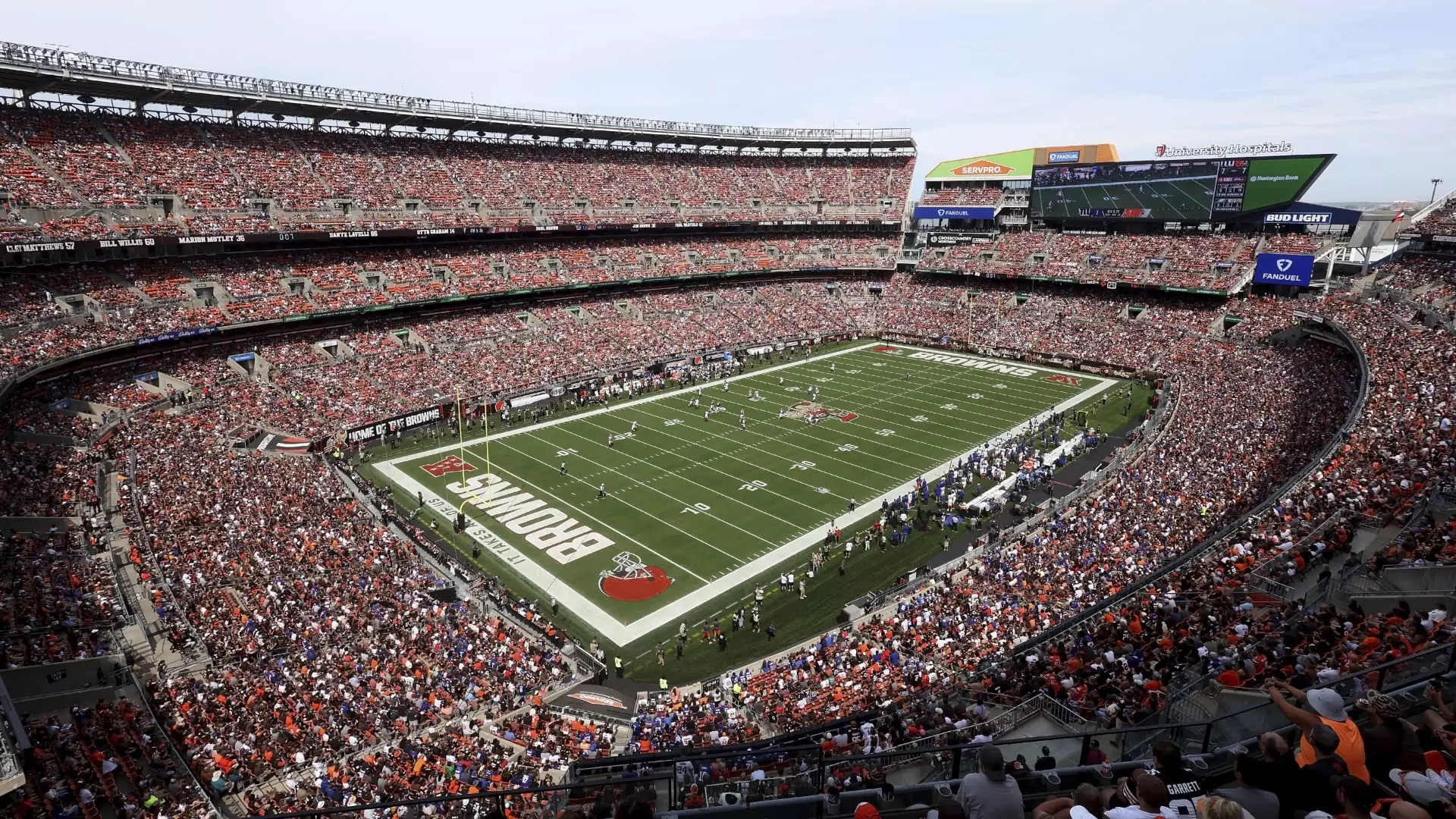The Cleveland Browns’ decision to relocate from their iconic home along Lake Erie marks a significant moment in the history of not only the franchise but also the city of Cleveland itself. The move comes as the team, under the ownership of Jimmy and Dee Haslam, embarks on plans for a new domed stadium in Brook Park, a suburb approximately 16 miles from the existing venue. This change has stirred controversy and disappointment among fans, city officials, and local businesses, raising questions about the implications of such a transition on the community’s economic and emotional fabric.
Mayor Justin Bibb’s reaction to the announcement encapsulates the sentiments felt by many in Cleveland. He condemned the Haslams’ choice as one rooted in financial gain rather than a commitment to the city that has hosted the Browns since their inception. Bibb’s assertion that the owners had opportunities to reinvest in their home stadium and community but chose profit underlines a broader narrative that frequently accompanies professional sports teams’ relocations—one where loyalty is overshadowed by financial motivations.
The financial arguments presented by the Haslams for their new domed stadium reflect a growing trend in professional sports where multipurpose venues are lauded not just for their primary use but for their potential to generate revenue through various events year-round. The owners pointed to recent successful events, like Taylor Swift’s Eras Tour, as exemplifying the lucrative possibilities of hosting concerts and entertainment in addition to football games. With reportings of recent NFL stadiums generating millions from single events, the Haslams argue that a domed structure is essential for maximizing revenue and ensuring the team’s financial sustainability.
Despite the promise of revitalization and economic opportunity through this private investment, skepticism remains regarding the balance between public good and profit. The Haslams have assured that the project will not rely on taxpayer funds, yet the implications of losing a beloved franchise and its accompanying economic impact—estimated at $30 million annually—will inevitably cascade through local businesses and beyond.
Cleveland’s sports culture is deeply intertwined with the identity of its residents. The Browns, despite their ups and downs, hold a significant place within the hearts of Browns fans. The team’s departure to Brook Park may sever the connection between the franchise and the passionate and loyal fanbase that has supported them through thick and thin. Mayor Bibb’s statement about the potential for future negotiations signals a willingness to keep the door open, but trust may become an issue as fans grapple with feelings of betrayal and the reality of a city grappling with economic uncertainty.
Moreover, the emotional ramifications extend beyond financial figures. The sense of community that arises on game days—a convergence of fans supporting their team—will be altered. This change underscores the complexities that arise when financial decisions disrupt longstanding traditions and communal ties, leaving the richer conversation around community benefit and engagement in the shadow of commercial interests.
The Browns’ management has expressed their ongoing commitment to Cleveland despite their relocation decision, sparking further dialogue about the possibility of creating a new deal—perhaps a renovated stadium retaining a footprint within the city. As negotiations around a new stadium in Brook Park move forward, the mayor has signalled an openness to re-enter discussions if Brook Park’s project falters. Such a position emphasizes that the relationship between sports franchises and their cities is not just transactional but one that must foster mutual respect and partnership.
The Cleveland Browns’ decision to leave Cleveland for Brook Park exemplifies the ever-evolving dynamics of professional sports as they intersect with community identity, economics, and loyalty. As the franchise embarks on this new chapter, both the team and the community must navigate the complexities of change and the impact it bears on both entities—years of tradition standing against the allure of commercial potential in a rapidly transforming NFL landscape.


Leave a Reply